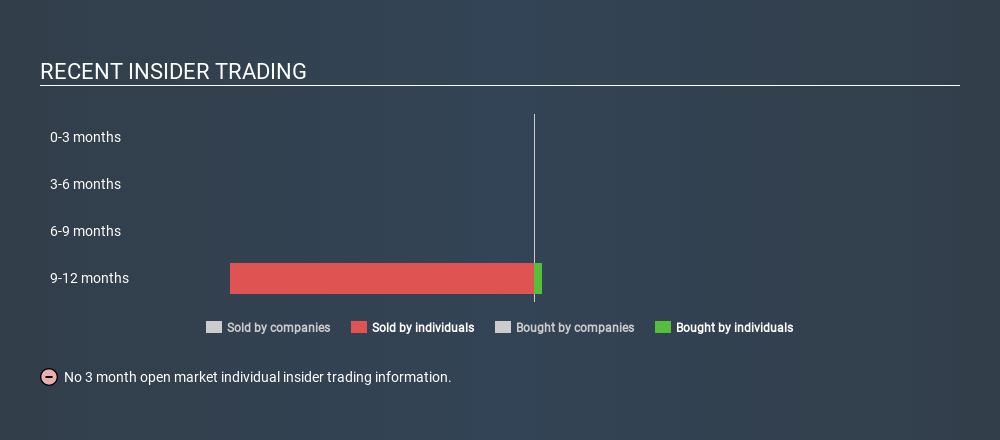- United Kingdom
- /
- Other Utilities
- /
- LSE:NG.
Need To Know: National Grid plc (LON:NG.) Insiders Have Been Selling Shares
We've lost count of how many times insiders have accumulated shares in a company that goes on to improve markedly. Unfortunately, there are also plenty of examples of share prices declining precipitously after insiders have sold shares. So before you buy or sell National Grid plc (LON:NG.), you may well want to know whether insiders have been buying or selling.
Do Insider Transactions Matter?
It is perfectly legal for company insiders, including board members, to buy and sell stock in a company. However, such insiders must disclose their trading activities, and not trade on inside information.
Insider transactions are not the most important thing when it comes to long-term investing. But equally, we would consider it foolish to ignore insider transactions altogether. For example, a Columbia University study found that 'insiders are more likely to engage in open market purchases of their own company’s stock when the firm is about to reveal new agreements with customers and suppliers'.
Check out our latest analysis for National Grid
National Grid Insider Transactions Over The Last Year
Over the last year, we can see that the biggest insider sale was by the CEO & Executive Director, John Pettigrew, for UK£1.1m worth of shares, at about UK£8.42 per share. So it's clear an insider wanted to take some cash off the table, even below the current price of UK£9.33. We generally consider it a negative if insiders have been selling, especially if they did so below the current price, because it implies that they considered a lower price to be reasonable. Please do note, however, that sellers may have a variety of reasons for selling, so we don't know for sure what they think of the stock price. It is worth noting that this sale was only 17% of John Pettigrew's holding.
All up, insiders sold more shares in National Grid than they bought, over the last year. The chart below shows insider transactions (by individuals) over the last year. If you click on the chart, you can see all the individual transactions, including the share price, individual, and the date!

I will like National Grid better if I see some big insider buys. While we wait, check out this free list of growing companies with considerable, recent, insider buying.
Insider Ownership of National Grid
Another way to test the alignment between the leaders of a company and other shareholders is to look at how many shares they own. Usually, the higher the insider ownership, the more likely it is that insiders will be incentivised to build the company for the long term. Insiders own 0.09% of National Grid shares, worth about UK£29m. This level of insider ownership is good but just short of being particularly stand-out. It certainly does suggest a reasonable degree of alignment.
What Might The Insider Transactions At National Grid Tell Us?
The fact that there have been no National Grid insider transactions recently certainly doesn't bother us. Our analysis of National Grid insider transactions leaves us cautious. But it's good to see that insiders own shares in the company. So these insider transactions can help us build a thesis about the stock, but it's also worthwhile knowing the risks facing this company. At Simply Wall St, we've found that National Grid has 5 warning signs (1 is potentially serious!) that deserve your attention before going any further with your analysis.
If you would prefer to check out another company -- one with potentially superior financials -- then do not miss this free list of interesting companies, that have HIGH return on equity and low debt.
For the purposes of this article, insiders are those individuals who report their transactions to the relevant regulatory body. We currently account for open market transactions and private dispositions, but not derivative transactions.
Love or hate this article? Concerned about the content? Get in touch with us directly. Alternatively, email editorial-team@simplywallst.com.
This article by Simply Wall St is general in nature. It does not constitute a recommendation to buy or sell any stock, and does not take account of your objectives, or your financial situation. We aim to bring you long-term focused analysis driven by fundamental data. Note that our analysis may not factor in the latest price-sensitive company announcements or qualitative material. Simply Wall St has no position in any stocks mentioned. Thank you for reading.
About LSE:NG.
National Grid
Engages in the transmission and distribution of electricity and gas.
Solid track record and fair value.
Similar Companies
Market Insights
Community Narratives



